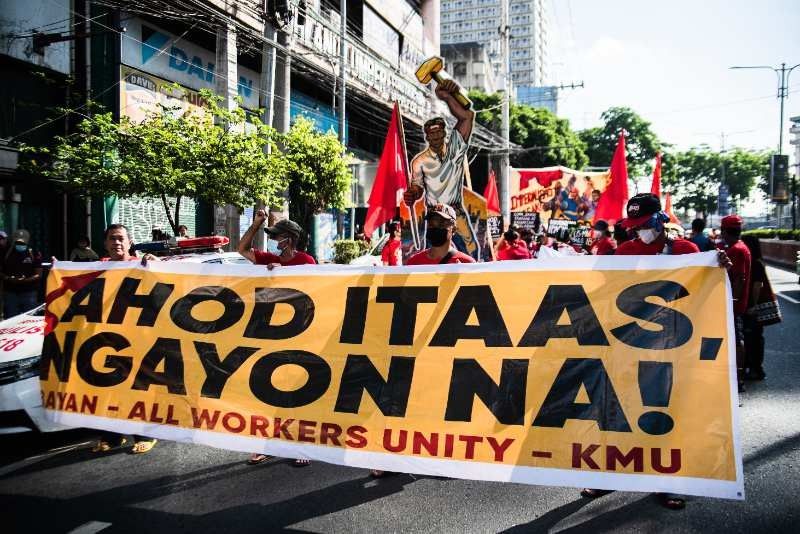'Why Naman?': The minimum wage has remained low since attacks on unions in the 2000s

MANILA, Philippines — The decline of labor unions — because of harassment and attacks on them — in the 2000s has led to historically low wages in the Philippines, according to Sonny Africa, executive director of IBON Foundation think tank.
Speaking on Philstar.com live show "Why Naman?" on Thursday night, Africa said that wage increases were more frequent and more generous in the 1980s and 1990s when around a third of all workers were in a union.
Africa said that unions clearly came under attack during the 2000s, when Gloria Macapagal-Arroyo was president. "That was the time that the attacks on unions was severe, they were called destabilizers and 'termites of society," he said.
"So, when they destroyed the unions in the 2000s, that was when wages stayed low."
Africa, who earned his bachelor's and master's degrees from the London School of Economics, said that wages can actually be a simple issue. If a business makes money, part goes to the employer and part goes to their workers.
"The worker is a partner of the employer. So, whatever is earned should be distributed among them, that is the proper way of looking at things," he said. "But the official policy of the government is to lower the cost of production, so workers are included in the cost of production."
That means, he said, employers tend to maximize their income by lowering their cost of production — including what they pay their workers. "That is a problem because we're talking about people."
READ: P150 minimum wage hike inches forward in Senate
Wages are supposed to be determined through consultations among employers, workers and the government, Africa said. But, since many workers no longer have unions, many are forced to accept whatever terms employers are willing to give.
"That should have been the role of government, to advocate for workers. But the government sides with employers. If employers say that they cannot afford to raise wages, the government just agrees."
Workers in Calabarzon filed a petition with the Regional Tripartite Wages and Productivity Board in late March seeking a uniform P750 minimum wage in the region. According to independent media collective Mayday Multimedia, workers have yet to receive any feedback from the regional wage board.
Africa said that that the government putting employers first has meant that the minumum wage and pay in general has not kept apace with inflation, nor have workers felt the effects of the country's economic growth.
"If the ordinary worker's wages have not increased, why would you say that the economy is growing? Maybe it's only the income of companies that is growing, or the income of a few rich families," he said.
"If the majority of Filipino families do not feel that — Who is the economy for? It shouldn't be just for a few. The economy is for the Filipino, a majority of whom cannot feel the growth of the economy because wage increases have been blocked," Africa also said.
--
'Why Naman?', a Philstar.com live show, looks at the systemic and structural causes of everyday problems and issues. It airs every Thursday at 7 p.m. on Philstar.com's Facebook page and is available on Spotify.
- Latest
- Trending































